National Conference on ‘Advancing Human Rights through Local Self Governments’
National Human Rights Commission
New Delhi: 17th November, 2023
National Conference on ‘Advancing Human Rights through Local Self Governments’
NHRC organized a National Conference on ‘Advancing Human Rights through Local Self Governments’ at Guwahati, Assam.
The National Human Rights Commission, NHRC, India held a National Conference on ‘Advancing Human Rights through Local Self Governments’ at Administrative Staff College, Guwahati, Assam, on 16th November, 2023 to sensitize local self-governments on various aspects of human rights.
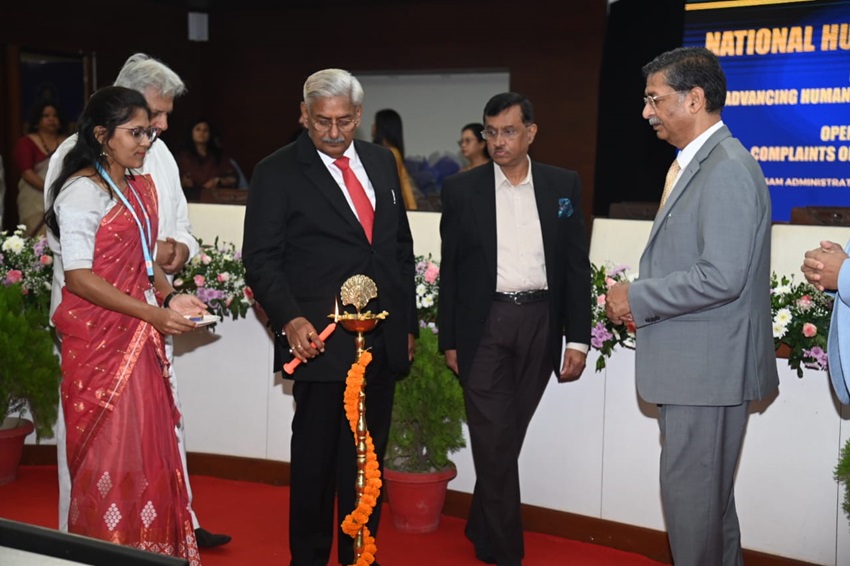
The team from the Commission, comprising of NHRC, India Hon’ble Chairperson, Justice Shri Arun Mishra; Members Dr. Dnyaneshwar M. Mulay and Shri Rajiv Jain; and Secretary General, Shri Bharat Lal accompanied by Registrar (Law) Shri Surajit Dey; Joint Secretary, Shri D. K. Nim attended the conference at Guwahati. The Chief Secretary, Assam, Shri Paban Kumar Borthakur, joined the NHRC team on the dias and addressed the audience. The Chairpersons of the State Human Rights Commissions of Assam, Meghalaya, Arunachal Pradesh, and Nagaland, besides the senior officers of the Central and State Governments from North Eastern States, Special Rapporteurs and Special Monitors of NHRC, representatives of Autonomous District Councils of various states, NGOs and Civil Society Organisations, senior officers of Panchayati Raj and Rural Development Departments, NIRD DG, etc .also participated in the national conference. Apart from that, many representatives from various organisations of various NE States also participated in the Conference.
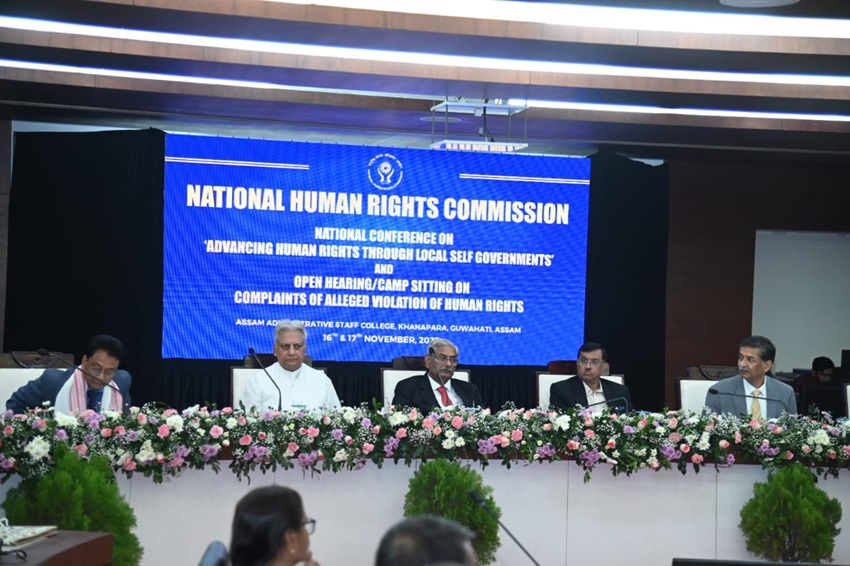
NHRC, India has been working to promote awareness of human rights issues at the ground level. The main objective of the conference was to create awareness regarding the role of Local self-government in advancing human rights and related facets of it. The participation of local community-based institutions and local self governments helps in a big way in promoting and protecting human rights. Local self-governments and community-based organizations, human rights defenders working at grassroots level are of immense help in protecting and promoting human rights by promoting the concept of ‘fraternity’ and in improving the quality of life of citizens and ensuring basic amenities, as well as in dealing with vulnerable groups with sensitivity and compassion. As Local Self Governments are working on the ground and so many subjects as well as funds have been devolved by 15th Finance Commission, the focus was protecting and promoting human rights as well as improving quality of life, water, sanitation, public health, etc. and ensuring dignity and equality for masses through local self governing institutions.
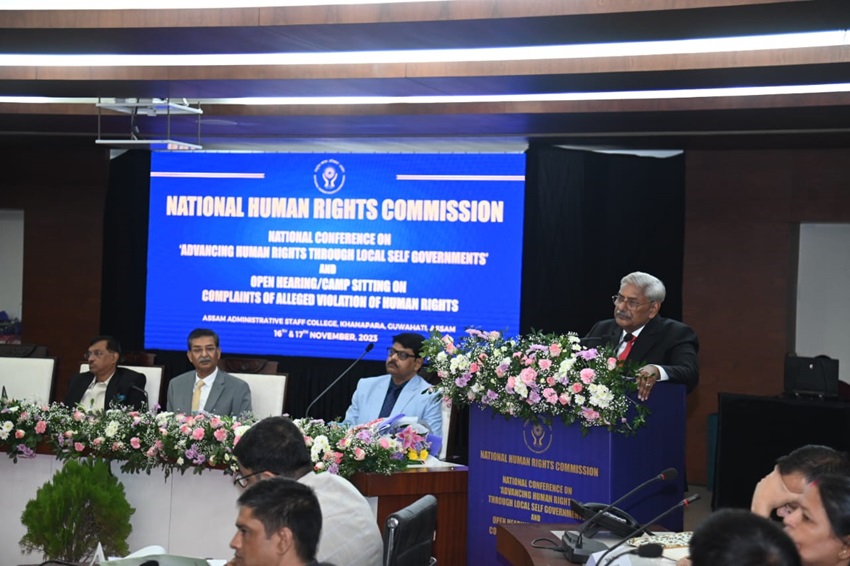
During the Inaugural Session, in his key note address, the NHRC, India, Chairperson Justice Arun Mishra emphasized the significance of 73rd Constitutional Amendment Act, 1992, as it brought about crucial changes in the governance structure by emphasizing the establishment and efficient functioning of Gram Panchayat, as outlined in Article 40 of the Directive Principal of State Policy. He also shared his concern over the ethnic conflict in Manipur, which has contributed to social and political tensions in the region.
Justice Mishra also mentioned about how the Local Self Governing Institutions play a major role in the social and economic development of people and have a major role to play in the protection and promotion of human rights at the grassroots level. He also showed concern over the ongoing low intensity conflicts in the NE region, especially with regard to violence against women, and other vulnerable groups.
Highlighting the aspect of mental health services and facilities in NE India, Justice Mishra stated that the NE region faces unique challenges, and the need for a holistic approach towards mental health. While addressing the healthcare challenges, he mentioned that it is essential to recognize the human rights dimension, ensuring that all individuals, regardless of geographical location, have equitable access to quality healthcare as a fundamental human right.He pointed out that the advisories issued by the National Human Rights Commission should be sincerely followed up and the provision given must be implemented by the stakeholders.
The Chief Secretary, Assam, Shri Paban Kumar Borthakur highlighted the significance of human rights in the context of smooth democratic values. Apart from the laws, it is the community that plays a significant role. He shared that in Assam, village councils work from Namghars (community prayer halls), where people not only come to pray but gather for important community discussions and decision. He stated that Mission Basundhara and Mission Bhumiputra, are some of the initiatives by the Assam Govt. for the welfare of the rural sector. In compliance to the orders by Hon’ble Supreme Court, Assam Government has carried out the installation of CCTVs in all the 332 police stations of the State. He also apprised that the Secondary Board of Education Assam has included of human rights education and best practices of NHRC in the course of primary, secondary and senior secondary level.
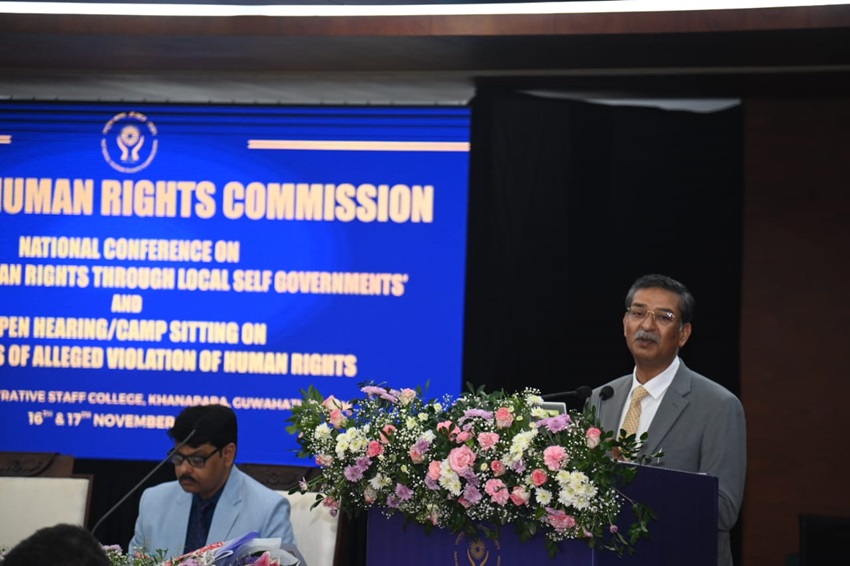
In his address, NHRC, India, Secretary General Shri Bharat Lal acknowledged that the full-house in the conference indicated that the subject and concern for human rights is not limited to the NHRC or SHRCs, but it is a concern for all. He shared that it is important to capture the best practices of North Eastern States, working at the grassroot level, especially in Assam. The LSG in both urban and rural areas, Autonomous District Councils, and more importantly the traditions of tribal communities, those practices and customs needs to be brought out and learn from. He emphasized that the duties and responsibilities given in the 73rd and 74th Constitutional Amendments the constitutions must be taken into account sincerely. He reiterated that the conference is all about the good things that we are doing and also the opportunities of what more can be done. Public service delivery, good governance, elimination of corruption has strong linkages and it is our duty to ensure that there is a smooth public service delivery.
In his welcome address, Shri D.K. Nim, Joint Secretary, NHRC, emphasized on achieving conceptual clarity, ascertaining the Local Self Governments' role and responsibility in championing the protection and promotion of human rights, and fostering human rights awareness through the exchange of best practices from Local Self Governments in the North Eastern States.
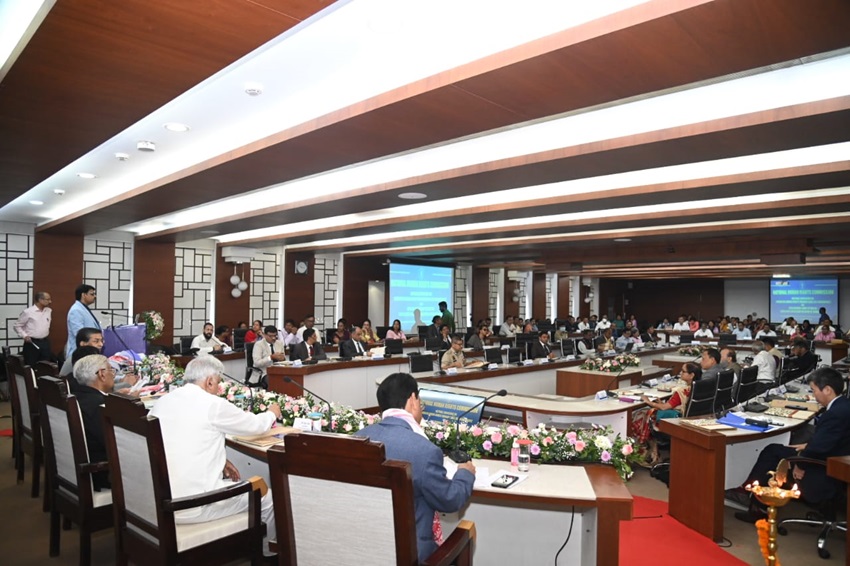
The Conference was held in two technical sessions, namely, ‘Advancing human rights through local self-governments’ and ‘Best practices of the local self-governments of the North Eastern States.’ While co-chairing the first session, Justice Shri Arub Kumar Goswami, Hon’ble Chairperson, Assam SHRC emphasized on the importance of promotion and protection of human rights in North Eastern States and stated about the significance of local self governance in this part of the country.
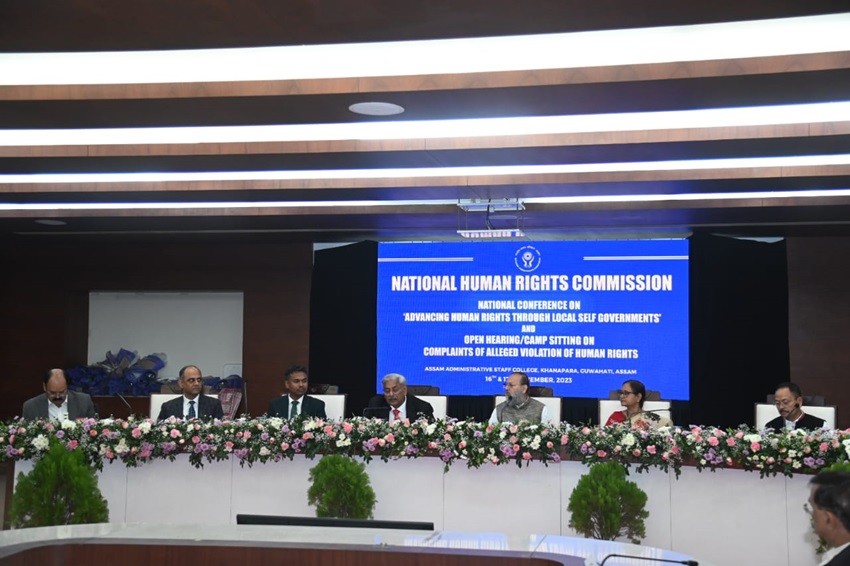
Dr. Justice Indira Shah, Hon’ble Chairperson, Arunachal Pradesh SHRC drew everyone’s attention towards the traditional ways of management of tribal people through village councils and local self governance. She also mentioned that human rights must be operationalised, that is, understood and applied at all levels and all sectors of public life to have the necessary impact. Shri Alok Prem Nagar, Joint Secretary (Governance), Ministry of Panchayati Raj, Govt. of India, stated that LSG is the fulcrum of equality and equity of human rights in the rural India. He also mentioned that the State finance commissions should be more responsible towards the rural development. He emphasized on strengthening the gram sabhas or peoples’ forum as a platform for inclusive spaces for dialogue and resolution. He also pointed out the importance of enhancing transparency and accountability using mix of technology and capacity building.
Other speakers during the session, including Shri Muninder Sharma, Secretary, Govt. of Assam, PR&RD Deptt.; Shri Jalash Pertin, Joint Secretary, Arunachal Pradesh SHRC; Shri Amrit Sangma, Andhunik India Foundation, Assam, pointed out the importance of participation of rural population in the development process, thereby creating a path towards participatory implementation. They talked about evolution of the LSG in the NE States, and the issues pertaining to specific States, including human right violations, ignorance of laws, and lack of awareness of various laws.
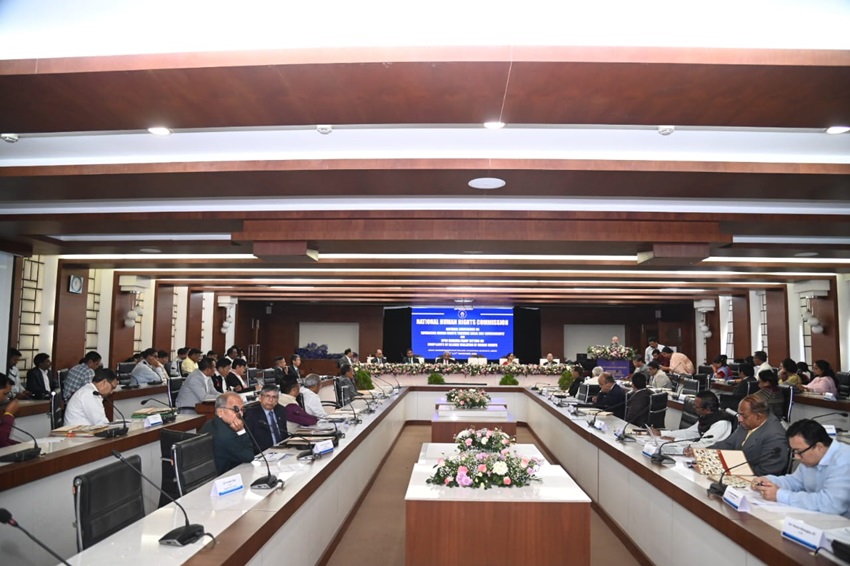
Initiating discussions in the second session, the Chair, Dr. Dnyaneshwar M. Mulay, Member, NHRC, highlighted the Panchayati Raj awards won by the village councils of North Eastern States. He mentioned about the various schemes, which are being implemented through the Local Self Governments in the North Eastern States for the protection and promotion of human rights.
Justice Shri Songkhupchung Serto, Hon’ble Chairperson, Nagaland, in his discussion, emphasized on the significance of local self governing bodies in the tribal areas of North East India. During this session, various other speakers, including Dr. G. Narendra Kumar, Director General, NIRD&PR, Hyderabad, Dr. R. Murugesan, Director, NIRD&PR, North Eastern Regional Centre; Dr. T. Vijayakumar, Associate Professor, NIRD&PR, North Eastern Regional Centre, mentioned few of the best practices of the North Eastern states, such as Nari Adaalat, an alternate dispute resolution mechanism in Assam; maternity ward at mini PHCs in Assam; creation of water ATM through Gram Panchayats in Manipur; creation of village development boards for self sustaining governance, in Nagaland, amongst others. They also emphasized on strengthening local finances for development through the Gram Sabhas. The Gram Panchayats play a major role in creating awareness about women and child safety, and creating an environment prioritizing the development focused on women and children.







 राष्ट्रीय मानव अधिकार आयोग, भारत
राष्ट्रीय मानव अधिकार आयोग, भारत

